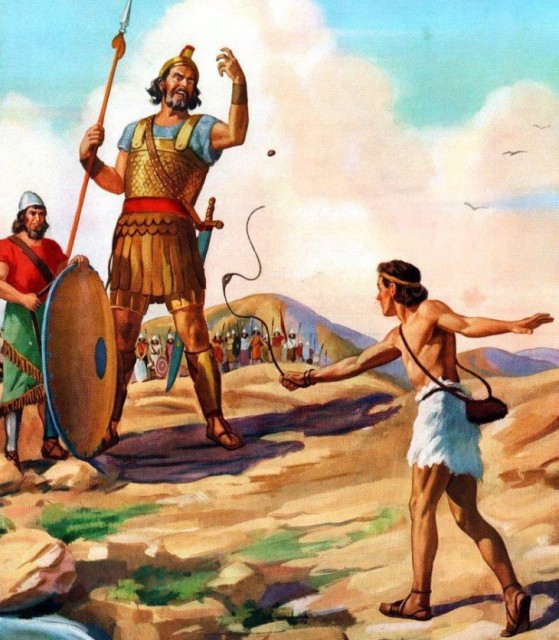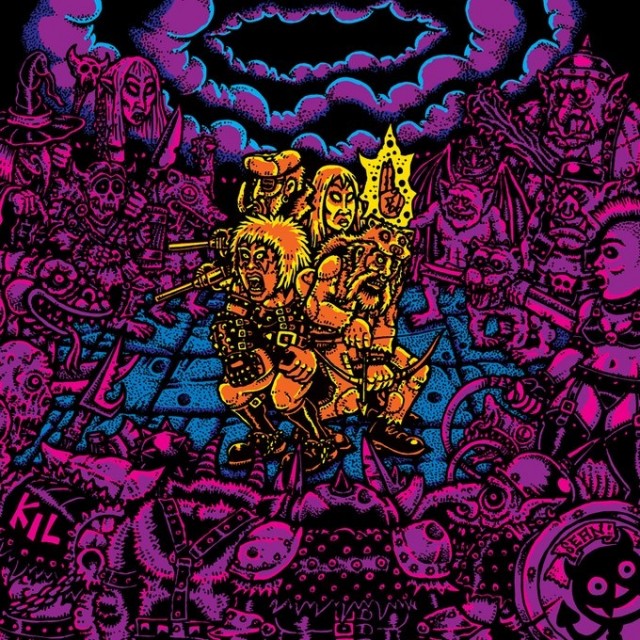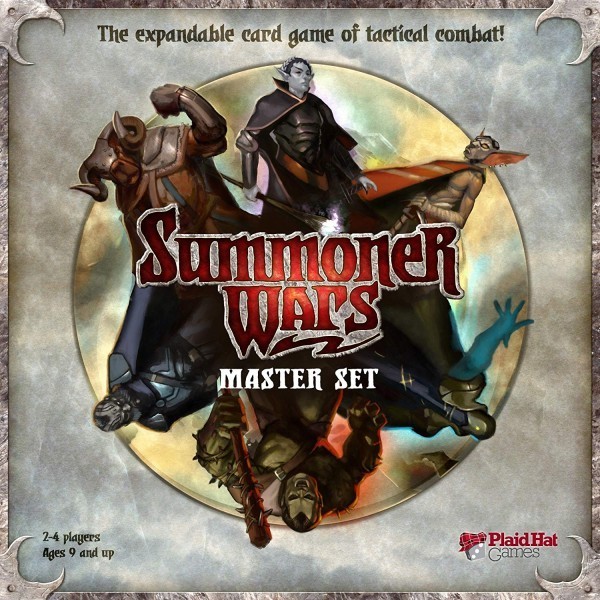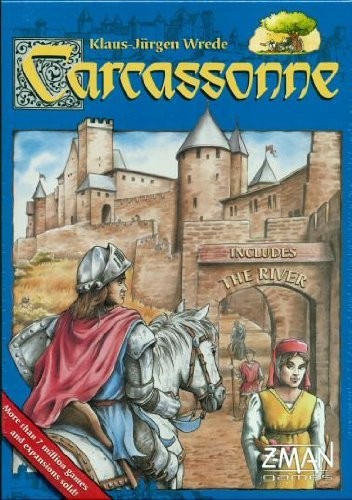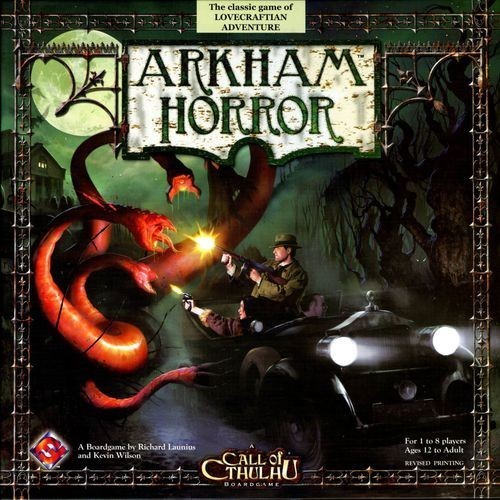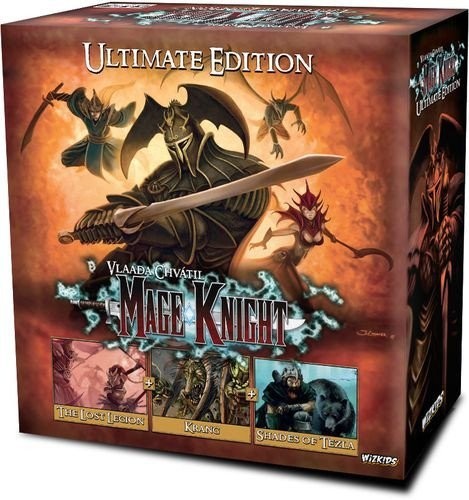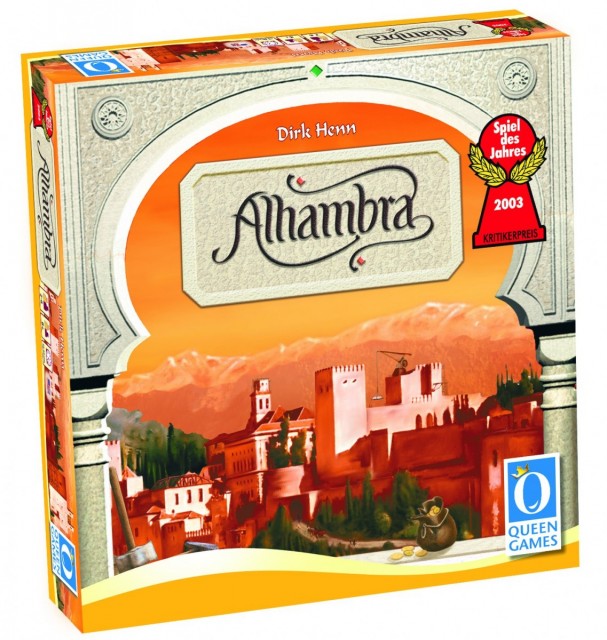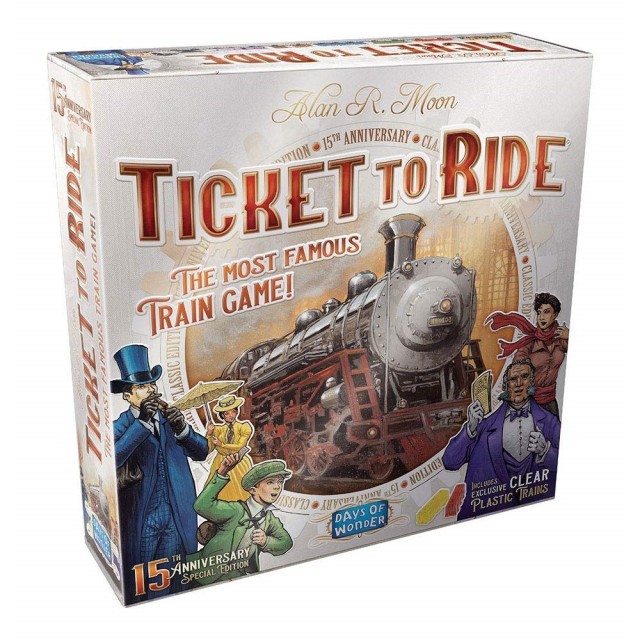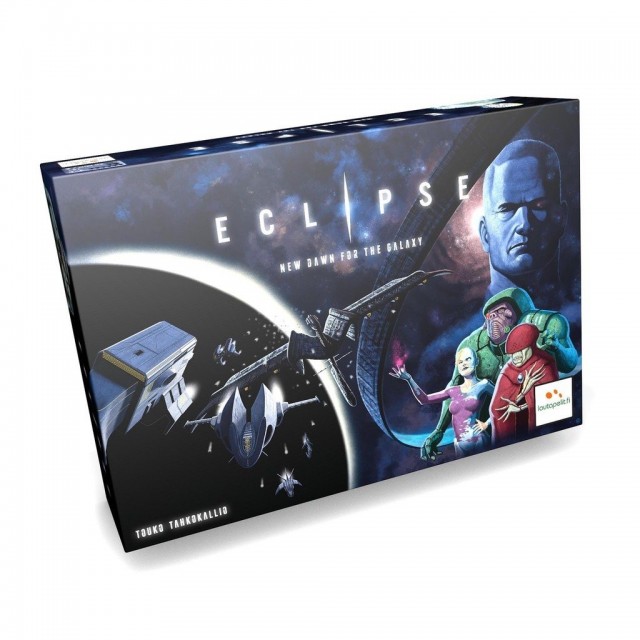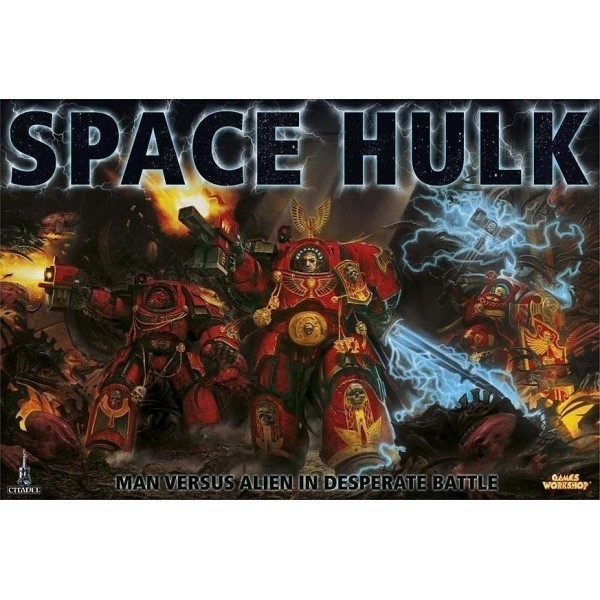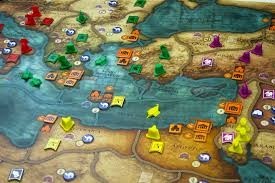 I have a confession to make: in spite of it being a favourite whipping
boy of many gamers whose opinions I respect, I’ve been nosing around Race for the Galaxy
recently, although I’ve never played it. What’s caused this is not a
sudden delight in efficiency engine games but the forthcoming release
of the Rebel vs Imperium expansion and its promised
“interaction”. Contrary to popular belief I’m an enormous fan of many
Eurogames which feature high levels of direct player interaction such
as Imperial and a recent discovery Traders of Genoa, so
an expansion to a popular and highly lauded Euro which promised lots
more interaction was certainly of interest, although I shall certainly
hang fire and see whether this turns out as real, red-blooded
interaction or the sort of “interaction” that the Agricola I-deck offered. My money is on it being the latter - but we’ll see.
I have a confession to make: in spite of it being a favourite whipping
boy of many gamers whose opinions I respect, I’ve been nosing around Race for the Galaxy
recently, although I’ve never played it. What’s caused this is not a
sudden delight in efficiency engine games but the forthcoming release
of the Rebel vs Imperium expansion and its promised
“interaction”. Contrary to popular belief I’m an enormous fan of many
Eurogames which feature high levels of direct player interaction such
as Imperial and a recent discovery Traders of Genoa, so
an expansion to a popular and highly lauded Euro which promised lots
more interaction was certainly of interest, although I shall certainly
hang fire and see whether this turns out as real, red-blooded
interaction or the sort of “interaction” that the Agricola I-deck offered. My money is on it being the latter - but we’ll see.
However, while you may be thinking this is heading toward a rant about low interaction games, I’ll head you off at the pass by stating that this has precious little to do with this weeks column. I just wanted to provide a little background about why I’d come to be nosing around Race for the Galaxy, because it lead me to the various arguments people have had about its adoption of confusing iconography in the interests of remaining language independent. Or not as the case may be - someone commented on BGN that it isn't actually language indpendent, so it's actually a bad opening example, but nevertheless, this sentence is all the editing the F:AT edition of the article is gonig to get, so we'll move rapidly on.
Not having played the game I can't comment on how obtuse or otherwise the icons used are, but whatever problems it might have caused in this case, the appeal to a publisher of making a game language-independent are obvious. Aside from the overheads incurred by having to translate the text on game pieces into more than one language, it allows a publisher to make a single print run and then ship copies out over the world to meet demand, instead of discovering it has under- or over-estimated demand in a particular region and missed out on profit/incurred a loss as a result. And generally what’s good for publishers is good for us, right, especially in such a niche market has hobby board games?
Well I don’t know how you feel, but personally it drives me up the wall.
Like a lot of native English speakers I, shamefully, don’t know how to speak any other languages. I’m familiar with a smattering of schoolbook French but in reality any attempt at conversation with a native Frenchman would probably result in us spending fifteen minutes asking each other the way to the lavatory in very loud voices. My feeble excuse is that I’m very bad at learning other languages - I struggled with it at school, and nowadays I struggle with it on holiday. As a result I tend to shy away from buying games published in foreign languages, however small the text translation required, because even encountering a single word on a card will necessitate my turning to BabelFish every time the card comes up. Narrow minded, possibly, and certainly unfortunate but that’s the way it is.
I’m coming to feel the same way about language independent games. As many players of Race for the Galaxy have noticed there seems to be an unfortunate trend for attempts to free games from reliance on knowledge of a particular tongue to result in games which are equally incomprehensible to speakers of any tongue at all. The fact of the matter is that most games - even ones with relatively simple rules - contain quite complex concepts and, worse, concepts that have to be understood very precisely in order to play the game properly. We’re all familiar with some game at some time in which we discovered a marginally misunderstood rule after a few sessions and were amazed at how radically it changed the game - such as my first two plays of Imperial in which we thought sea areas didn’t count for taxation. Those little misunderstandings are oh so much easier if everything is being conveyed to you in flowcharts and symbols instead of a natural language that you grew up with.
Beyond the mere fact of conveying useful information during play, the trend for language independent editions of games has had other, perhaps unforseen consequences for me. Take another favourite high-interaction Euro of mine: Wallenstein. The game is German-only so, in spite of enjoying it I wavered on buying the foreign language edition and was rewarded for my prevarication by the announcement of an English edition. Turns out that the early rumours weren’t quite right: the edition wasn’t English but language independent, and the game was going to be translated to feudal Japan. Quite why this change occurred is a mystery to me: possibly Queen Games thought that no-one outside Germany would be interested in a psuedo-historical game about the thirty years war although why feudal Japan should have more cross-cultural appeal is beyond me. If anyone could shed some light on the reasons behind this choice, and indeed why the designer tweaked the mechanics as well, I’d be genuinely interested to know. Anyway, I waited and bought the reprinted game, Shogun shortly after it came out and was annoyed to find that whilst very good, I thought it notably inferior to the original. I preferred the old theme, for one thing. For another the old board encouraged more conflict while the elongated map of japan lead to occasional static and dull games with players getting wedged into highly defensible positions. I also preferred the more random (and, it has to be said, simpler) approach to events in the original. To add insult to injury I found the iconography on the cards to be fairly impenetrable, leading to a much slower phase of allocating actions, and the game contained something like seven different rulebooks in different languages, six of which were a waste of paper and which fitted badly in the box. Now before the fanboys take me apart, I’ll re-iterate that these are minor points are Shogun is still very good game, but seeing one of my favourite titles made marginally worse just so the publisher could make an ill-judged attempt at putting out a language independent game rankled for me. Indeed it’s entirely possible, looking back on it now, that this is where my negative feelings on the subject actually started.
I can think of other good reasons to avoid language independent games. There are a number of theme heavy titles - Magic: the Gathering and War of the Ring amongst them - which gained quite a lot of atmosphere through the flavour text on the cards. In truth neither of these games would make remotely sensible candidates for language independent editions because the actual rules on the cards were too important and verbose to survive such treatment. But the point is that by rushing out to design components with icons instead of text on them, a publisher is loosing out on a number of subtle ways to improve the game play atmosphere. Sure good art helps, but I’d maintain that a combination of good art and good flavour text works an awful lot better.
Whenever I get into a negative rant like this I feel it’s important to wedge something positive into the discussion so I’ll mention that I’ve come across at least one game that does language independence correctly: Galaxy Trucker. Most the the game material - aside from the rulebook - has no need for text. The icons required for the cards are very limited because they boil down to a pretty small set of interconnected effects, with variety being achieved through different combinations of those principles on a card instead of a relatively wide variety of different effects as is the case in games like Shogun and Race for the Galaxy. The details are explained quite clearly in the rules which are, of course, language specific. And as a result of all this the whole package works.
In view of the fact that some games, treated carefully, work perfectly well with language independent editions, it is doubly irritating that there seems to be no rhyme or reason amongst publishers as to deciding which games should get this treatment. It looks as though Race for the Galaxy was a poor choice. In contrast the publishers of the aforementioned Imperial went to the time and expense - some of which is inevitably passed on to the consumer - of printing all the components dual-sided with German on one side and English on the other in spite of the fact that there virtually no non-numeric game information on the components themselves and it is in fact a game begging for a language independent edition. It seems like every time we play Imperial most of the players don’t even notice which way up their bonds are - I can even recall one occasion playing on the German side of the board and no-one noticing until halfway through the game. And yet I’ve paid to have these pointless dual-sided components. Some sort of discerning choice about when to attempt language independence would make no end of difference to how I feel about these games.
I may be in a minority in my opinions on this subject, but I’m still going to end this article with a simple plea. Poorly thought out language independent games do seem to irritate a lot of gamers and certainly put at least some gamers off buying in the first place. Think about the gamers who play the game before you think about the minutiae of your printing and distribution costs, and think carefully. Please.
 Games
Games How to resolve AdBlock issue?
How to resolve AdBlock issue? 
